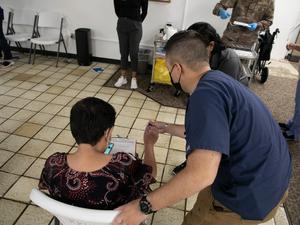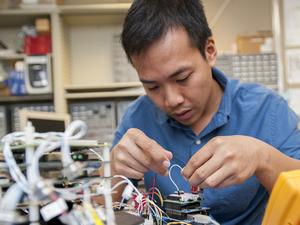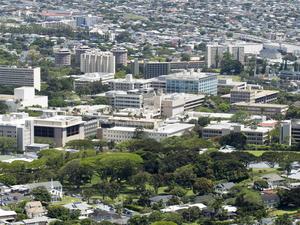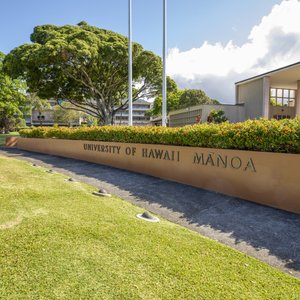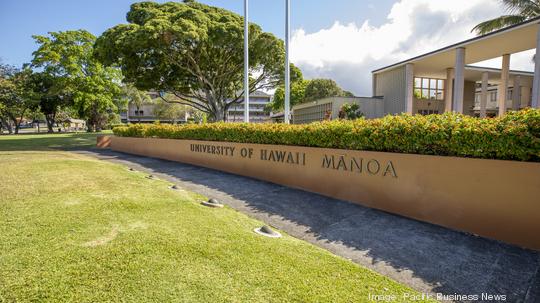
The National Oceanic and Atmospheric Administration, or NOAA, selected the University of Hawaii to lead its new Cooperative Institute for Marine and Atmospheric Research, or CIMAR, program — a role that includes a five-year commitment of $210 million.
The program's purpose, according to officials with NOAA, is to conduct research, as well as understand and predict environmental changes in the Indo-Pacific region, with the goal of improving the conservation and management of coastal and marine resources in Hawaii and other Pacific islands associated with the United States.
CIMAR will conduct research under eight different themes: ecological forecasting, ecosystem monitoring, ecosystem-based management, protection and restoration of resources, oceanographic monitoring and forecasting, climate science and impacts, air-sea interactions, and tsunami and other long-period ocean waves.
“UH is a recognized leader on climate and marine science in the Indo-Pacific region,” said U.S. Sen. Brian Schatz, a member of the Senate Appropriations Committee, in a statement. “NOAA’s investment in UH will help us better forecast natural hazards like hurricanes, king tides, and tsunamis; protect the health of our oceans and fisheries in the face of climate change; and maintain the U.S. leadership role in ocean and earth science in the region.”
The funding more than doubles the available money that UH's marine and atmospheric research program previously received from NOAA.
“This new award, reaffirming a 44-year collaboration between NOAA and UH, is a testament to the excellence of the accomplishments by federal and UH researchers,” said Doug Luther, director of the Joint Institute for Marine and Atmospheric Research in the UH Manoa School of Ocean and Earth Science and Technology, NOAA’s previous cooperative institute hosted by UH, in a statement. “It provides the resources for CIMAR to advance in the tropical Pacific NOAA’s concept of healthy oceans, ecosystems, communities and economies that are resilient in the face of environmental change.”
“Pacific island communities face daunting challenges and unique opportunities in achieving a sustainable and prosperous future as the environment and regional economies continue to change,” Luther said. “NOAA's support is critical for attaining this future.”

